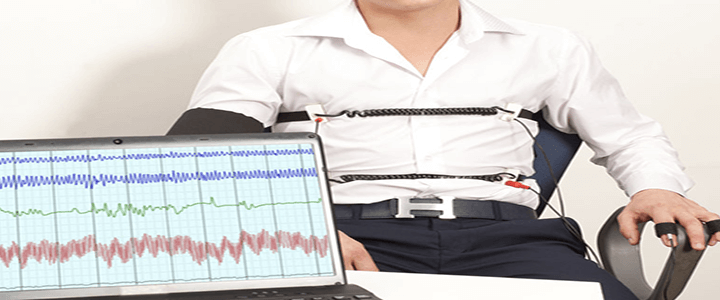For so many of those cleared professional jobs out there, there’s the polygraph examination. For some, it’s the dreaded polygraph, the lie detector. When it comes to cleared careers, we don’t too often think about that guy on the other side of the table, the polygraph examiner. Here are a few things to know about a career catching others in lies.
IT’S NOT A LIE DETECTOR!
While the device can help identify human responses consistent with one telling a lie or trying to hide something, it’s not a lie detector! So stop calling it that. It’s a polygraph (which etymologically means many writings, which makes sense when you watch the machine work—many little pens recording many physical responses simultaneously). And if you administer polygraph examinations, you’re a polygraph examiner. But you’re more than that. You’re a forensic psychophysiologist. Telling your friends at happy hour you’re a lie detector may make them slide away. Telling them you’re a professional forensic psychophysiologist may make them slide back, lean in, and listen.
TRAINED PROFESSIONALS
Being a forensic psychophysiologists takes more than just plugging in the machine and strapping in a willing subject. It takes some pretty interesting training. According to the American Polygraph Association, examiners are “highly qualified professionals who are motivated to help protect the public by verifying the truth, while following the highest standards of moral, ethical, and professional conduct.” That means “hundreds of hours of coursework at an APA approved school, as well as an internship.” And the science of psychophysiology continues to develop, so professional examiners can expect to continue their education beyond initial certification.
polygraph examiner JOB FORECAST
And there are jobs. Think about it. As the federal government accelerates security clearance processing; as institutions like the National Security Agency, Federal Bureau of Investigation, the Central Intelligence Agency, and others in the intelligence community hire more cleared professionals; as we become more and more wary of internal leaks, the intelligence industry is going to rely more and more on polygraph examinations more routinely. “Jobs for all forensic examiners are expected to grow at a rate of 19 percent through 2020, reports The Balance. “This is slightly higher than the national average for all occupations in the United States.” I suspect that estimate focuses more on the forensic, or criminal, side of the polygraph profession and less on the intelligence community side. I’d guess the growth rate will be higher.
PROFESSIONAL ETHICS and polygraphs
As with many professional disciplines, forensic psychophysiologists or polygraph examiners claim a strict code of ethics. For examiners, that means they don’t use their skills in contravention to the law. They don’t accept payment for conclusions, they are paid for the service, no matter the outcome. Naturally, when reporting, polygraph examiners should, well, tell the truth (or they end up in an endless hell of circularity). And even though an examiner in the course of an examination may discover all sorts of juicy details about a subject’s private life, ethical forensic psychophysiologists don’t report or share those embarrassing details, unless the law requires it.
Even if you don’t imagine spending the next thirty years trying to catch people lies, you might imagine training and experience in the forensic psychophysiologist field an exciting path into cleared corridors.



